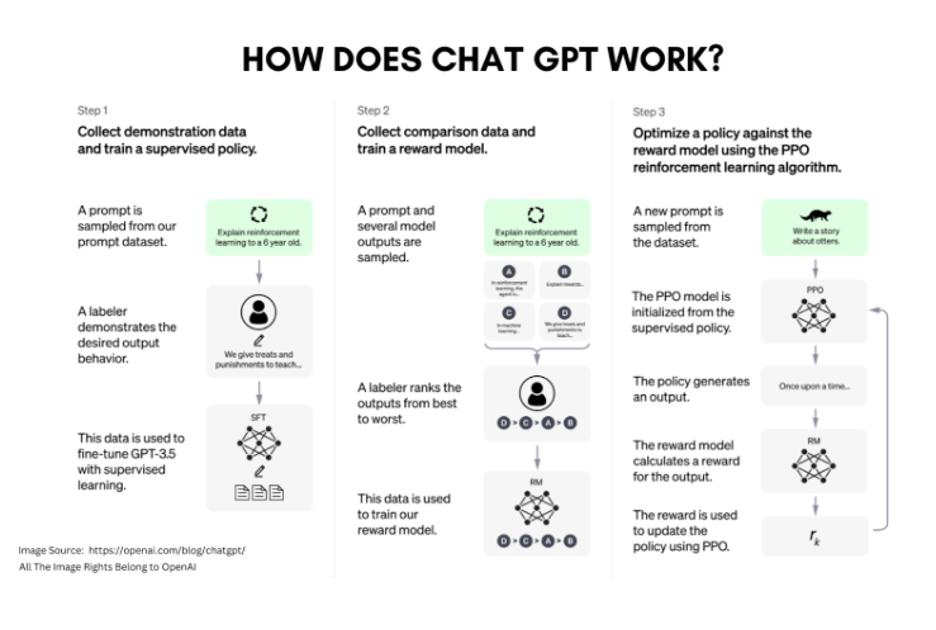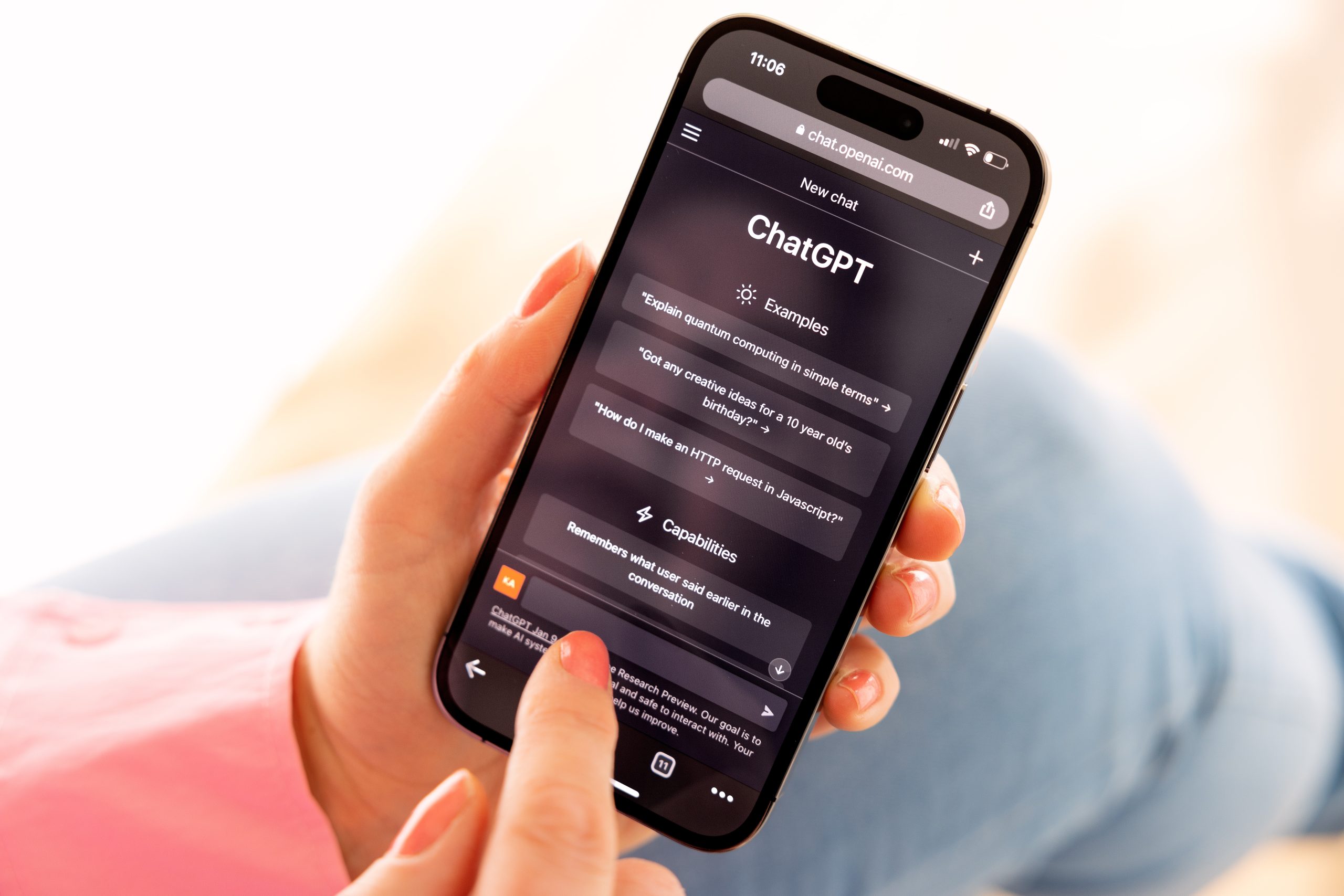By the end of 2023, ChatGPT — pioneered by Open.ai, the artificial intelligence research lab that trained the chatbot — is expected to bring in $200 million in revenue by capitalizing on the areas where traditional conversational AI fell short. In its previous iteration, 81% of practitioners would abandon chatbots due to complaints such as a lack of personalization, irrelevant responses and rigid options for questions.
To close those gaps, practitioners across the board are embracing ChatGPT to enhance existing chat strategies: The conversational AI experienced a meteoric rise, reaching one million users in just five days after its Nov. 30, 2022 launch. For comparison, it took Facebook 10 months to achieve the same milestone. In the latest form, ChatGPT is a family of large language models and fine-tuned with both supervised and reinforcement learning techniques. More specifically:

“Unlike prior chatbots, whose scope of knowledge was narrow, large language models like ChatGPT have been trained on vast stores information, both curated and scraped from the Internet,” said Andrew Frank, Distinguished VP Analyst in the Gartner Marketing Practice. “This gives it a baseline of knowledge out-of-the-box. Its free-to-low-cost status and built-in scalable infrastructure also eliminate adoption barriers in a very disruptive way.”
While we’ve all heard of ChatGPT and its uses — for better or worse, depending on your source — there’s no denying the influence it’s having on the world, touching everything from generating editorial copy to writing jokes. I’ll be honest: The first thought that went through my mind when I started digging into ChatGPT was, “Well, there goes my job!” And I know my thoughts echoed those of others: A quick Twitter search of ChatGPT reflects my sentiment (mixed with the occasional technological Doomsday conspiracy). However, Frank explained that there’s no need to worry.
“There’s little doubt that ChatGPT and models like it will make many tasks redundant, especially where entry-level writing and documentation is involved — but ChatGPT still requires supervision,” he said. “Folks should be honing their skills to use tools like ChatGPT to accelerate productivity while still adding editorial value, including fact-checking and sensitivity to issues like hidden biases and stylistic anomalies.”
Instead of viewing it as a competitor to traditional tasks, Frank advised marketers to fold it in as a supplement to existing processes. However, he cautioned marketers to not blindly trust the technology, especially considering data privacy concerns. Frank explained that “the first order of business” should include establishing policies and procedures to prevent misinformation and data leaks. And given the wide-reaching impact of ChatGPT, it’s imperative that marketers take it slow and gradually acclimate themselves to the technology by setting clear processes.
“The potential marketing use cases for ChatGPT and its ilk are very broad, ranging from all kinds of first-draft writing assignments to API-based deployments for personalized conversational applications to full-blown custom models that can unleash an organization’s latent knowledge for all of its stakeholders,” explained Frank. “Marketers need to start with basic goals and values as they unpack all of the possibilities it may have on their organizations.”
While ChatGPT might seem confusing and, frankly, scary when taken at face value, it will ultimately supplement marketing activities by streamlining inefficient, time-consuming processes. And just like all the other pieces of technology, ChatGPT seeks to enhance marketers’ abilities, not render them useless.
“ChatGPT marks a turning point in the role of generative AI in business and society, much like the early web browsers of the 1990’s cemented the Internet at the core of global communications,” said Frank. “Now that conversational capabilities can be added to almost any electronic device, I expect people will eventually become more accustomed to conversing with machines in their native language. There’s also potential for large language models like ChatGPT to develop vocal capabilities, like Alexa and Siri, and merge with other large transformer models that can produce images, code and eventually video and 3D models.”







